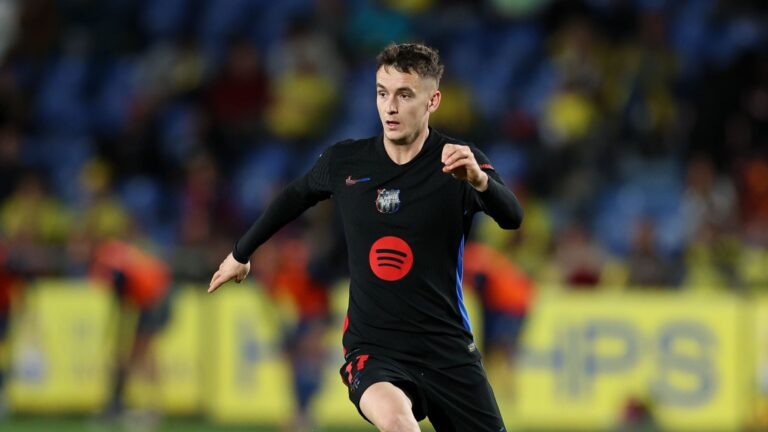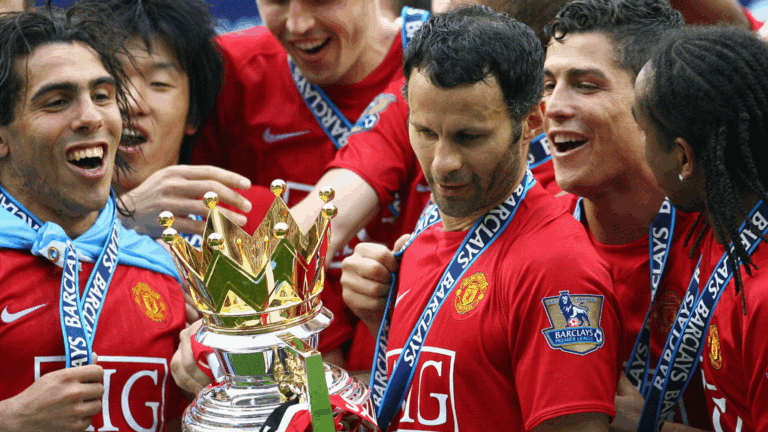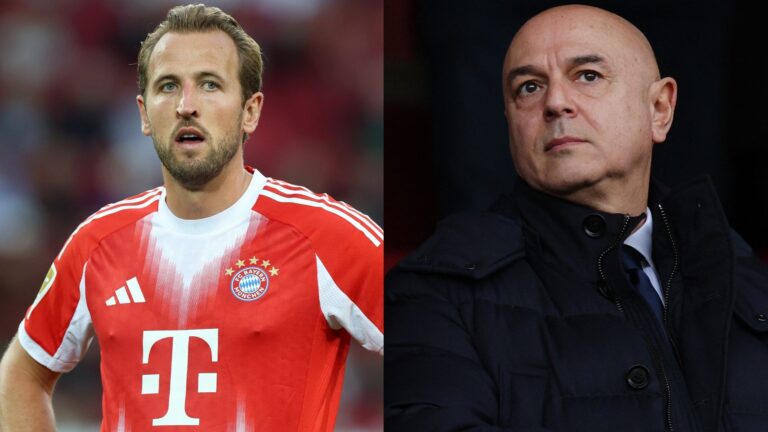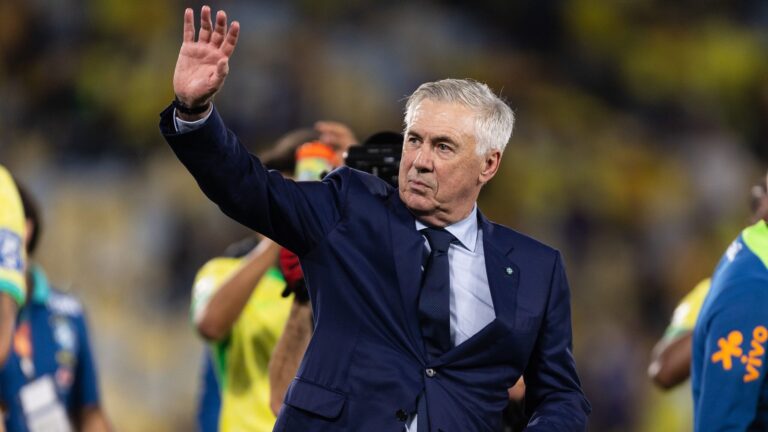- Ralf Rangnick risks stepping down from Austria‘s helm
- Securing World Cup spot remains critical
- Austria’s football federation eyes first tournament appearance since 1998



Ralf Rangnick’s High-Stakes Gamble in Austria’s World Cup Pursuit
The former Manchester United manager, Ralf Rangnick, has put his position on the line for Austria’s World Cup qualification journey, vowing to leave if they miss out on the 2026 finals. With an impeccable run so far-including three straight wins in Group H-Austria finds itself in a tight race, trailing behind Bosnia and Herzegovina, who boast four victories. This sets the stage for a pivotal encounter in Zenica, where a win by at least two goals could propel Austria to the top and snap their World Cup absence since 1998.
Austria’s Quest for Global Glory Under Rangnick’s Leadership
Since taking over in 2022, the 67-year-old coach has transformed the team, instilling a sense of order and resilience that has long been missing from Austria’s international efforts. His agreement with the federation lasts only as long as qualification remains possible, highlighting the intense pressure of this campaign. Key players like David Alaba and Marcel Sabitzer are driving the charge, offering Austria a real chance to shine on the world stage once more. Yet, falling short could disrupt not just their aspirations but also force a sudden leadership change at a crucial juncture for the team.
Insights from the Austrian Football Federation
Austrian FA chairman Josef Proll recently shared with APA news agency that Rangnick’s commitment is unwavering: “If success eludes us, he won’t stay on. He’s been explicit about that.” Proll added, “Should we advance, his deal extends to the World Cup, and we’ll revisit it then. For now, all efforts are centered on the upcoming matches to reach this milestone.” This underscores the federation’s focus on immediate results amid rising expectations.
The Decisive Clash and Its Implications
A triumph over Bosnia and Herzegovina by two goals would not only elevate Austria to the group lead but also mark an unprecedented four consecutive wins at the outset of World Cup qualifying-a feat that would energize the squad. Rangnick himself emphasized the match’s importance, stating, “This encounter is pivotal; it’s essentially a match that could shift the balance. A victory would propel us forward significantly.” Recent updates show Group H remains fiercely competitive, with teams like Bosnia continuing their strong form, making every point count in the race for 2026 spots. As qualification heats up, this result might define Austria’s path and Rangnick’s tenure, potentially influencing future strategies in international football.
Broader Context of World Cup Qualification Dynamics
In the ever-evolving landscape of World Cup qualifiers, groups like H are seeing dramatic shifts, with current statistics indicating that only the top teams will advance. For Austria, drawing from examples like recent qualifiers where underdogs have surged ahead, the emphasis on defensive solidity and counter-attacks-strategies Rangnick has refined-could prove decisive. This approach mirrors successful turnarounds in other nations, such as how teams have bounced back from early setbacks to claim spots, adding a layer of intrigue to Austria’s campaign.
Looking Ahead to 2026
As the qualification process progresses, with matches revealing tighter margins than ever-evidenced by the latest standings where goal differences are key-Austria must capitalize on their momentum. Rangnick’s tactical nous, honed from his Premier League days, positions the team well, but the outcome of this critical game could reshape their World Cup qualification narrative for years to come.
Ralf Rangnick’s Journey as Austria’s Coach
Ralf Rangnick, the renowned German tactician and former interim manager at Manchester United, has been making waves in European football with his role as head coach of the Austria national team. Since taking over in 2022, Rangnick has brought his signature high-pressing style to the squad, leading them through an impressive World Cup qualifying campaign. Despite this success, recent reports suggest that Rangnick is contemplating resignation, sparking debates among fans and analysts alike. This potential move has fans wondering about the future of Austrian football and what it means for a team that’s currently performing at its peak.
The Flawless World Cup Qualifying Campaign Under Rangnick
Austria’s World Cup qualifying journey under Ralf Rangnick has been nothing short of extraordinary. The team has secured a perfect record so far, winning all their matches in the group stage with a blend of tactical discipline and attacking flair. Key victories against strong opponents like Sweden and Moldova highlight the transformation Rangnick has instilled, emphasizing quick transitions and intense pressing that align with his philosophy often called “gegenpressing.”
This flawless run has not only positioned Austria as a formidable force in Group F but also boosted their chances for direct qualification to the 2026 World Cup. Rangnick’s strategies have been pivotal, drawing from his extensive experience in club football. For instance, his time at RB Leipzig, where he pioneered modern pressing tactics, seems to have translated seamlessly to the international stage. Football enthusiasts are particularly excited about how Rangnick has adapted his approach to a squad with varying player fitness levels, making Austria’s campaign a case study in effective international management.
Reasons Ralf Rangnick Might Be Considering Resignation
Speculation about Rangnick’s potential resignation stems from several factors, including personal reasons and professional challenges. As a former Manchester United coach, Rangnick may be eyeing opportunities back in club football, where he can implement his ideas over a longer term. Reports indicate that the constant travel and shorter cycles of international management could be taking a toll, especially after his high-profile stint in the Premier League.
Another angle is the pressure of maintaining success. Even with a flawless qualifying campaign, Rangnick has faced scrutiny over player selections and tactical decisions in friendlies. This mirrors his time at Manchester United, where he dealt with squad inconsistencies and media buzz, ultimately leading to his departure. If Rangnick steps down, it could open doors for him in leagues like the Bundesliga or Premier League, where his expertise in youth development and tactical innovation is highly valued.
In a recent interview, Rangnick hinted at the demands of the role, saying, “International football is rewarding but requires a different kind of commitment.” This has led to discussions about work-life balance for coaches, with experts noting that the job often involves long absences from family, which might be influencing his decision.
The Impact on Austrian Football and Beyond
Rangnick’s potential exit could significantly affect Austria’s football landscape. The team has seen a resurgence under his leadership, with young talents like Marcel Sabitzer and David Alaba thriving in his system. Without him, Austria might struggle to maintain their momentum, especially as they approach crucial qualifiers.
On a broader scale, this situation underscores the volatility in international coaching. Fans often debate the benefits of hiring experienced managers like Rangnick, who bring proven strategies but may not stay long-term. For aspiring coaches, Rangnick’s career offers practical tips: focus on building a clear tactical identity, invest in player development, and prioritize adaptability. For example, his success with Austria shows how emphasizing fitness and high pressing can turn a mid-tier team into contenders.
Case Studies: Rangnick’s Coaching Philosophy in Action
Looking at case studies from Rangnick’s past roles provides insight into his methods. At Manchester United, he introduced pressing drills and set-piece innovations, which, despite mixed results, laid groundwork for future success. Similarly, with Austria, he’s applied these principles to achieve a flawless qualifying record, demonstrating how his philosophy adapts across contexts.
One real-world example is Austria’s match against Sweden, where Rangnick’s tactics led to a dominant 3-0 win. By using high pressing to force turnovers, the team created scoring opportunities that echoed his strategies at RB Leipzig. This not only highlights the benefits of his approach-such as improved team cohesion and defensive solidity-but also serves as a first-hand experience for players who’ve grown under his guidance.
Practical Tips for Football Fans and Aspiring Coaches
While following Rangnick’s story, fans can draw practical tips from his tenure. For those managing amateur teams, try incorporating elements of gegenpressing, like quick counter-attacks, to enhance gameplay. Benefits include better fitness levels and more engaging matches, as seen in Austria’s dynamic performances.
Additionally, aspiring coaches can learn from Rangnick’s first-hand experiences: always prioritize mental preparation, as international breaks demand peak focus. His ability to motivate a squad with limited preparation time is a key takeaway, potentially helping local coaches improve their strategies for tournaments. This conversational insight into Rangnick’s world makes the topic even more relatable, showing how his decisions ripple through the football community.









